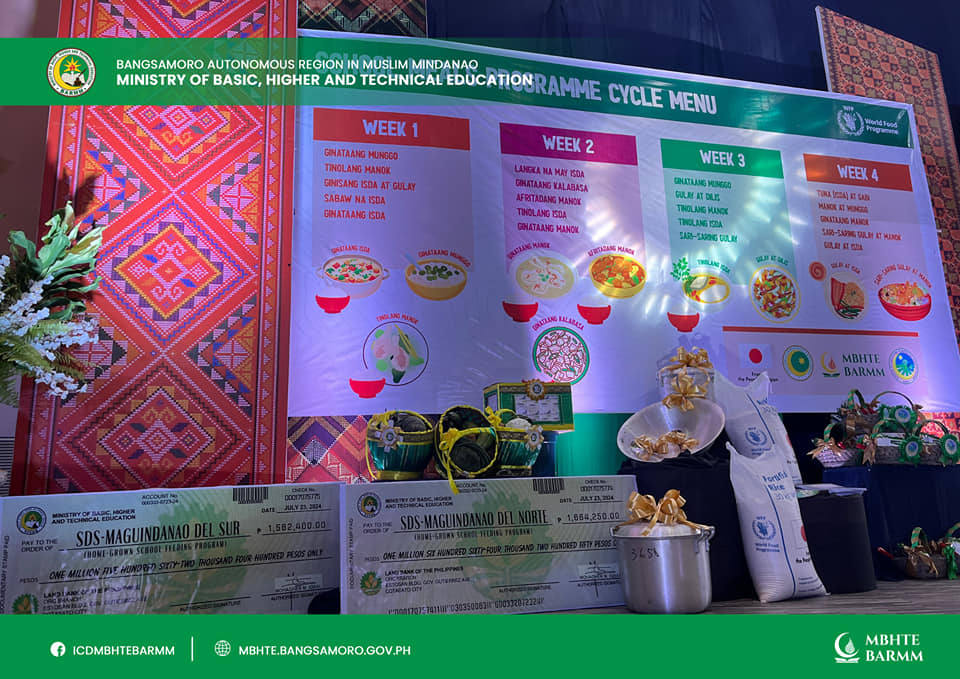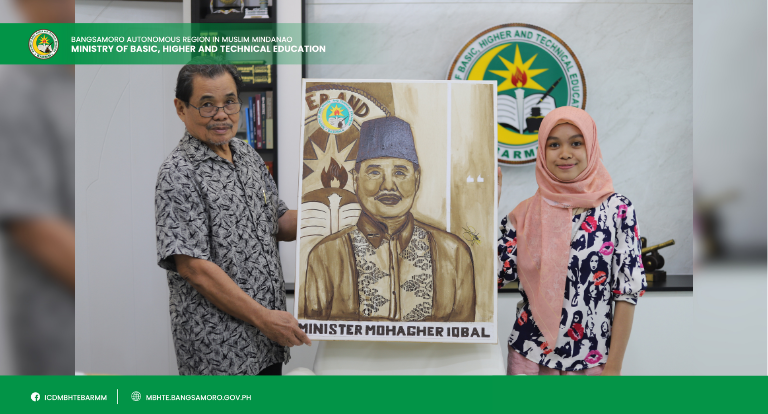The Bangsamoro Autonomous Region in Muslim Mindanao (BARMM), through the Bangsamoro Food Security Task Force (BFSTF) in collaboration with the World Food Programme (WFP), launched Tuesday, July 23, the Home-Grown School Feeding (HGSF) Programme to select schools in the seven (7) municipalities in Maguindanao.
Nine (9) schools from the municipalities of Datu Abdullah Sangki, Datu Blah Sinsuat, Datu Saudi Ampatuan, Matanog, Sultan Mastura, Upi, and South Upi will be the pilot schools for the implementation of the HGSF.
BFSTF Chair, also the Minister of Agriculture, Fisheries, and Agrarian Reform, Mohammad Suwaib Yacob, underscored the importance of the HGSF and said, “we are committed to protect our children, and we want them to grow up healthy.”
In the Ministry of Basic, Higher and Technical Education (MBHTE), the HGSF has been integrated in the existing School-Based Feeding Program which embodies the essence of collaboration between education, nutrition, health, agriculture, among others.
Stressed the crucial link between health and education, MBHTE Minister Mohagher Iqbal said “Healthy children tend to be better learners, and children’s access to nutritious food positively affects their overall development, leading to improved school performance.”
“Malnutrition and hunger are not just health issues but barriers to education, personal growth, and societal development. It is unacceptable that in Bangsamoro – located in the region known as the food basket of the Philippines – children still suffer from hunger and malnutrition, hindering their ability to learn and thrive,” he added.
A budget allocation worth Php1,562,400.00 was handed over to the schools divisions of Maguindanao del Sur and Maguindanao del Norte to cover 100 feeding days of learners in the pilot schools.
This initiative is aligned with the region’s Food Security and Nutrition Road Map to contribute to improving education outcomes, addressing malnutrition, support local agricultural production and foster collaborations among various stakeholders.
Meanwhile, WFP Deputy Country Director Dipayan Bhattacharyya ensured that their organization will provide technical assistance through evidence-based advocacy to enhance policies, programme design and capacity strengthening for the successful implementation of the HGSF programme for the next five years.
“Investing in the education, health and nutrition of the younger generation is critical to improving future prospects for economic growth and development, who will be the human capital of the BARMM,” he said.








